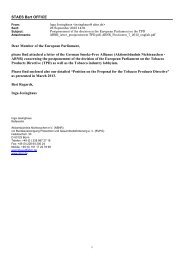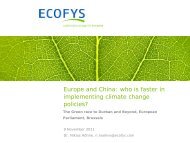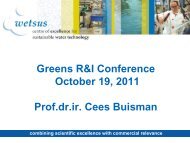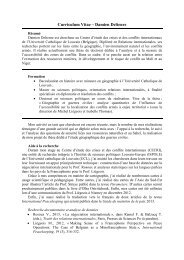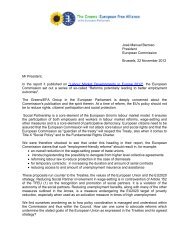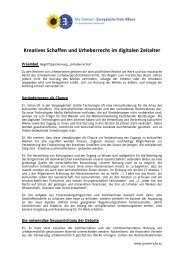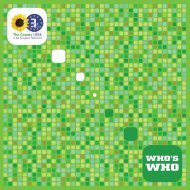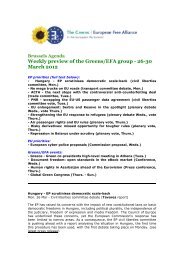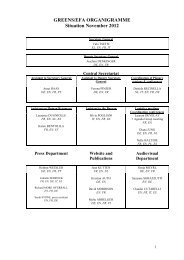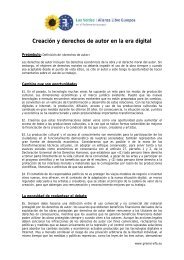Agro-Biotechnology: - The Greens | European Free Alliance
Agro-Biotechnology: - The Greens | European Free Alliance
Agro-Biotechnology: - The Greens | European Free Alliance
You also want an ePaper? Increase the reach of your titles
YUMPU automatically turns print PDFs into web optimized ePapers that Google loves.
Future applications will combine cloning, cell culturing and genetic engineering.<br />
A further aspect in of cloning farm animals is its implications for encouraging<br />
cloning in humans.<br />
From a breeder’s perspective, nuclear transfer allows the propagation of genomes<br />
whose phenotypes are proven and desired. In combination with artificial<br />
insemination, these genetic conditions can spread rapidly throughout a population.<br />
But at the same time there is a risk of shrinking biodiversity. Furthermore,<br />
insofar as these genetic conditions harbour unexpected adverse effects, they<br />
can affect large populations in a short period of time. This process might be<br />
irreversible if genetic material from cloned animals is distributed throughout<br />
the population for several years. More over, by cloning the fastest-growing and<br />
highest-yielding animals, even higher levels of health and welfare problems<br />
than the observed in traditional selective breeding may result.<br />
Many of the problems created by cloning are those a result of technical details<br />
in the procedure. Cloning violates the biological integrity of the egg cell and<br />
the nucleus and causes epigenetic dysfunction and further disturbances on the<br />
levels of genome and cell regulation. Its outcome depends on several technical<br />
details, but observed effects do not follow a defined cause-effect relationship.<br />
Despite all the efforts in cloning, the causes and mechanisms underlying the<br />
adverse health effects observed cannot be determined so far. Furthermore, its<br />
implications cannot be confined to the first generation of cloned animals. <strong>The</strong><br />
range of observed effects is broad and not clearly limited to certain organs or<br />
parts of the life cycle, although the likelihood of these effects seems to decrease<br />
in animals at higher ages and in following generations. All expectations that<br />
technical difficulties will be overcome in the very near future are not based<br />
on sufficient scientific evidence. <strong>The</strong>re is no silver bullet around the corner to<br />
solve these problems, simply because of its biological complexity.<br />
<strong>The</strong> overall consequences of introducing cloning in farm animals have to be<br />
discussed in a broader context. <strong>The</strong> economic interests of a few companies in<br />
pushing their technology into markets should not lead to any hasty decisions in<br />
EU legislation to open markets for products for which substantial uncertainties<br />
remain. <strong>The</strong> discussion should be driven from the perspective of consumers<br />
so as to avoid market penetration without authorisation, controls and transparency.<br />
It is a matter of concern that food products derived from cloned animals<br />
might have already reached the food chain within the EU without notice.<br />
Given the awareness of the uncertainties regarding food safety, the adverse impacts<br />
on animal welfare, the possible socio-economically consequences, and the<br />
need for transparency and traceability, the need for legislation is urgent. Most<br />
needed are import regulations regarding animal material and the cloning of<br />
animals for food production. <strong>The</strong> framework of the WTO does not exclude these<br />
kinds of measures. Only if this level of production is fully regulated, the measures<br />
directed at the food market can be discussed. Without proper regulation<br />
Summary | Cloned farm animals - a ‚killing application‘? | 5



